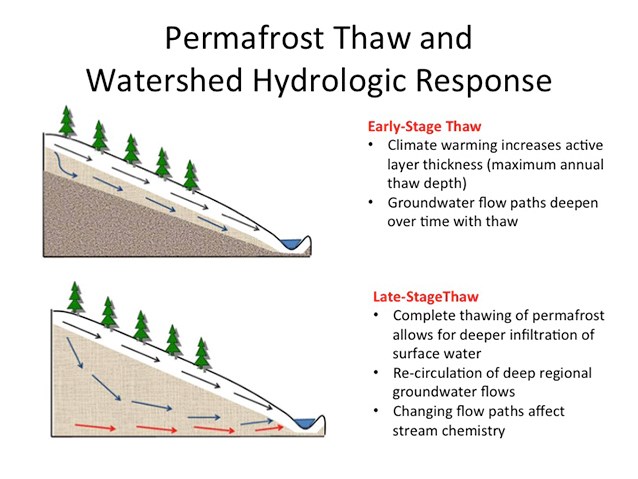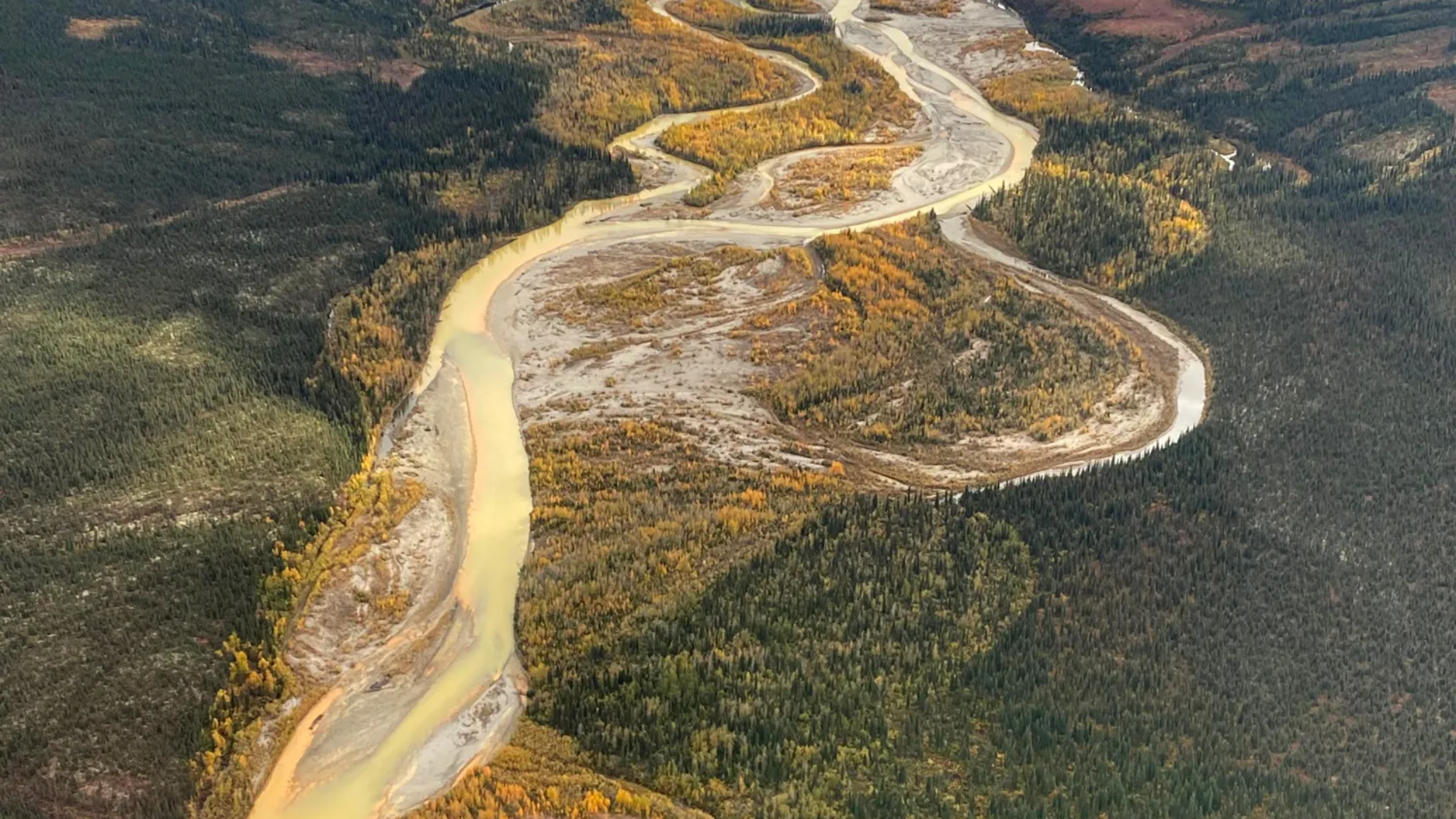Researchers said the changes could be the result of melting permafrost — propelled by climbing temperatures — which released naturally occurring sulfide minerals into the water. When these minerals, including iron, slip into the water, they react with oxygen and effectively rust, turning clear streams bright orange.
In the remote landscapes of Alaska, an alarming phenomenon is unfolding dozens of rivers and streams are transforming from crystal clear waters to murky shades of orange. This stark visual transformation is not only a cause for concern but also a sign of underlying ecological disruptions, as revealed by recent research.


Permafrost’s Melting Impact
The root cause of this striking color change lies in the thawing of permafrost, or frozen ground, due to climate change. Led by Jon O’Donnell, an ecologist with the National Park Service’s Arctic Inventory and Monitoring Network, a team of researchers embarked on a comprehensive study to understand this phenomenon. Their findings, published in the Nature journal Communications: Earth and Environment, shed light on the ecological consequences of thawing permafrost in Alaska.


Scale of the Issue
O’Donnell and his team identified over 75 locations across Alaska’s Brooks Range, equivalent in size to the state of Texas, where rivers and streams exhibited this distinctive orange hue. These observations were corroborated by satellite imagery, revealing the vast extent of the affected areas. The discolored waterways, visible even from space, serve as a sobering reminder of the profound changes occurring in Alaska’s pristine landscapes.
Chemical Transformations
Chemical analyses of the rusty rivers unveiled a concerning shift in water composition. High levels of toxic metals such as iron, zinc, nickel, copper, and cadmium were detected, alongside a significant increase in acidity. The researchers attributed these changes to the release of minerals stored within the permafrost as it melts. Once exposed to water and oxygen, these minerals undergo weathering processes, releasing acid and metals into the rivers.
Ecological Ramifications
The implications of this ecological shift extend far beyond the visual transformation of Alaska’s waterways. The contaminated rivers pose a threat to aquatic life, with potentially devastating consequences for fisheries and ecosystems. The acidic and metal-laden waters can impair the health of fish populations and disrupt critical habitats, jeopardizing the delicate balance of Arctic ecosystems.
Concerns for Drinking Water and Fisheries
Beyond ecological concerns, there are tangible risks to human communities dependent on these water sources. The contaminated rivers could compromise drinking water quality, necessitating costly filtration and treatment measures. Moreover, the impact on fisheries could have far-reaching socio-economic ramifications, affecting livelihoods and food security in the region.
Urgency of Action
As the climate continues to warm, the pace of permafrost thawing is expected to accelerate, exacerbating the problem. O’Donnell and his team emphasize the urgent need for further research to understand the full extent of the issue and develop mitigation strategies. Long-term monitoring efforts are essential to track changes in water quality and assess the resilience of rivers and streams to rebound after colder weather restores permafrost.
Collaborative Research Efforts
Addressing this complex environmental challenge requires interdisciplinary collaboration and concerted efforts from scientific institutions, governmental agencies, and local communities. The ongoing research, funded by organizations such as the U.S. Geological Survey and the National Park Service, underscores the importance of understanding and mitigating the impacts of climate change on Arctic ecosystems.
The transformation of Alaska’s rivers into rusty orange waterways serves as a poignant reminder of the far-reaching consequences of climate change. Thawing permafrost, driven by rising temperatures, is unleashing a cascade of ecological disruptions, with implications for both natural ecosystems and human communities. As we confront the challenges posed by climate change, concerted action and scientific inquiry are crucial to safeguarding the fragile balance of Arctic environments.
ALSO READ : What Is ‘Quiet Vacationing’? Unveiling The Emergence And Significance



